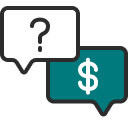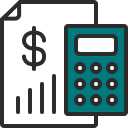What Is a Business Note?
A business note is a type of debt security used in the owner-financed sale of a business. It defines the terms of the buyer’s obligation to repay the loan, typically along with a set interest rate over a specific period of time.
Seller financing of a business typically requires three parts:
- An asset purchase agreement detailing exactly which assets are being sold.
- A promissory note, or business note, specifying the total amount paid, interest, term of the note, amount of monthly payments and any other financial details of the transaction.
- A personal guarantee from the buyer stating that if they default on the note, they are still financially liable for the debt.
Business notes typically include the sale of the business, along with its inventory and other assets. They don’t always include the physical location. Sales of real property are more likely to be handled through a commercial mortgage note or a real estate note — each of which works in similar ways to a business note.
Read More: Promissory Note vs. Mortgage Note
What Are the Benefits of Selling a Business Note?
If you are a business owner and are currently receiving financing payments from the purchaser of your business through a note structure, you have the option of selling your future payments in exchange for a lump sum now. You will pay a percentage of the amount — whether you sell the whole note or just a portion of it — to the buyer or broker in exchange for access to this lump sum.
One of the chief benefits of selling a business note is that it will give you, as the seller, a lump sum of cash instead of waiting to receive monthly payments from the purchaser of your business. You can use the lump sum immediately to pay off an unexpected expense, start a new business or anything else that requires an upfront cash payment.
Tax advantages are another benefit of selling your business note in portions versus in whole. Rather than selling the entire note, you might sell a portion so that your bill on the earnings is less at tax time. You can sell another portion later to continue deferring your taxes in this manner.
Another benefit of selling your business note is that you’ll no longer have to administer your owner-financed loan to your sold business’ new owner. Removing your ties to the note also transfers any risk that the new owner might default to the business note buyer.
What Is the Process for Selling a Business Note?
Before you sell your business note, you need to decide whether you want to sell the whole note or a portion of it.
- Full Purchase Buy-Out
- In a full purchase buy-out, you will receive a single lump-sum payment for the full value of your business note minus a discount — a sum the buyer takes as profit. This is called a discount rate. It’s a percentage of the balance on the note. The lump sum may result in higher taxes.
- Partial Purchase Buy-Out
- In a partial purchase buy-out, you only sell a portion of the business note. You still pay a discount rate. You get a lump sum for a portion of the note’s value and the note buyer receives payments from the business owner for a specific amount of time. At the end of that time, you can resume collecting the business owner’s payments or sell another portion of the business note. This may provide you with both significant lump sums of cash while providing you with a tax advantage over a full purchase buy-out.
Buy-Out Options for Selling Your Business Note
You should compare discount rates before settling on a business note buyer and consult with your tax preparer or another financial advisor about the tax implications of either type of sale.
Once you’ve decided between these options, you’ll want to get the best offer for your note. This means comparing business note buyers, their discount rates and any other requirements they have for buying your note.
5 Steps To Selling Your Business Note

1. Get Quotes
Request quotes from several business note buyers. These quotes may vary widely depending on several factors ranging from the down payment you required on the note to how many payments you’ve already received. When you decide on the best price, accept the bid.

2. Submit Paperwork
You’ll need to submit several documents related to the business note to the note buyer. These include a copy of the promissory note, a copy of the asset purchase agreement, or a chattel agreement depending on the state where you sold the business. The note buyer will verify the assets and collateral associated with the note before moving forward.

3. Provide Sale Documentation
If the asset verification pans out, the buyer will request multiple documents related to the sale of the business, financial and tax statements and legal documents. These include copies of the bill of sale, proof of a personal guarantee, closing documents on the business sale and possibly additional documents depending on the type of sale and state.

4. Sign a Purchase Agreement
At this point, you are typically “pre-approved” by the note buyer and will sign a purchase agreement to go through with the sale of your business note to the note buyer. But you must still pass the buyer’s underwriting requirements. The note buyer will review the documents you’ve provided to assess whether to ultimately purchase your business note.

5. Closing
If the underwriting process clears the business note as a viable purchase, the note buyer will set a time for closing on the sale. You and the buyer will sign closing documents — which can often be done via overnight delivery or at a lawyer’s office.
Who Buys Business Notes?
Companies may specialize in buying business notes, or they may be financial institutions that buy similar types of securities — such as business loans, mortgage notes or commercial notes.
Business note buyers have experience in purchasing owner-financed business sales. They can review your business note arrangement, assess the risk and determine if buying your business note is a worthwhile investment for the company.
Business note buyers may also provide guidance for business owners looking to sell their business through an owner-financed arrangement like a business note. A note buyer can suggest the best down payment, interest rate and other details you should require before selling your business through a business note.
Working with a business note buyer before selling your company may help you craft a business note that you can sell for the most money later, if you ever decide to do so.
How Much Is Your Business Note Worth?
How much your business note is worth depends on several factors. Each factor can affect the discount rate, which is the percentage of the face value of the balance of your note that the business note buyer will charge you. The higher the discount rate, the less money you will receive from selling your note.
Certain factors in the note seller’s control can lower the discount rate as much as possible. For example, waiting until you can show a history of having received multiple monthly payments on the business note can lower the note buyer’s discount rate. This shows the note buyer that the new business owner can continue making payments.
You’ll also want to make sure that your business note is the first lien against the business’ new owner. If it’s in second or third position, you’ll find it hard — if not impossible — to find a business note buyer to purchase your note.
Ultimately, getting the most cash for your business note is a matter of contacting secondary market buyers and weighing offers. Business note buyers are generally willing to talk about your options and typically will be agreeable to whatever arrangement works best for you.

